WRITTEN TESTIMONY
Jason Duff
Founder/CEO, Small Nation
Before 116th United States Congress, House Committee on Small Business
Subcommittee on Rural Affairs, Agriculture, Trade, and Entrepreneurship
Kick Starting Entrepreneurship and Main Street Economic Recovery
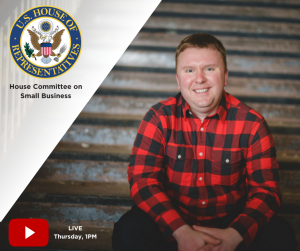
Thank you Chairwoman Finkenauer, Ranking Member Joyce, and the distinguished members of the subcommittee. My name is Jason Duff and I am the Founder of Small Nation. Established 14 years ago in Bellefontaine, Ohio, Small Nation was formed during our nation’s economic crisis and is dedicated to investing in places, spaces and dreams for small towns and entrepreneurs.
Bellefontaine is a town of 13,000 people in Logan County, sixty miles northwest of Columbus, twenty-five miles from the nearest major interstate, and an hour from the closest metropolitan area. It is like many other important and valuable courthouse communities across the country. We have a strong commitment and reliance on agriculture, manufacturing and tourism. We are rural and depend on the vibrancy of our local economy and jobs to generate taxes which support local government, schools, and our community’s health and social safety nets.
80% of the downtown’s storefronts were vacant when I began my journey 14 years ago. Blight, crime, arson and opioid abuse plagued our town. Working with our city, county and other local leaders, my team and I developed a vision and plan to restart the local economy that began with finding unique ways to reduce unemployment by investing in people as well as places. We started buying historic buildings on Main Street, providing loans to entrepreneur’s with good plans and ideas, arming these new businesses with ongoing coaching, mentorship and support.
The kinds of new businesses which have flourished in our town include new dine-in restaurants, coffee shops, hair salons, shopping boutiques, air-bnb’s, health and wellness studios and a locally owned professional offices and services. All of these businesses have thrived because of the fact that they belong to a supportive, growing and innovative small business community. Like many communities who struggle, we either didn’t have a supportive ecosystem or knew that one existed. It had to be created. Thankfully we were introduced to organizations like the Small Business & Entrepreneurship Council, the local Chamber of Commerce, historic preservation organizations like Heritage Ohio and resources and grants from the Small Businesses Administration.
COVID-19 and the ongoing pandemic poses an unprecedented new set of challenges for small businesses as they strive toward recovery. McKinsey estimates that between 1.4 million and 2.1 million small businesses (25% to 36%) could permanently close, and that estimate was based on just the first four months of the pandemic.
Responding to government and health mandates, reduced demand, lack of capital and new customer expectations have all created significant barriers for small businesses to succeed.
The disruption has also created a host of new business opportunities and industries that small and local businesses can play an important role and win against their multinational competitors. We have seen the creativity of the American entrepreneurs in the way they prepare and deliver food, create and provide education and training and using technology and video in ways we never thought possible.
We’ve also seen how businesses can step up and solve important health and safety needs during the pandemic. From creating masks, shields and much needed access to PPE, businesses of all sizes are responding to serve. They are ALL ESSENTIAL.
At the heart of all of this, are people who listen, solve problems and create solutions and get paid for those solutions. A recent survey by Get App shared the fact that 92% of U.S. small businesses have reinvented themselves during the pandemic says a whole lot about this bunch. Small business owners are scrappy go-getters with no quit in them.
In times of change, small business owners are looking for leadership, good ideas and financial support. Now is the time to help our businesses be able to innovate, pivot and capture opportunity in this new post COVID reality.
I’ll share one example we’re working on in our town. With more people working outside of the office than before, we’re opening BUILD Cowork + Space. BUILD is a collaborative work community designed to inspire, connect and enable small businesses and solopreneurs in small towns to build something great. We are equipping or enhancing buildings with private lockable offices and conferences rooms where you can Zoom or meet in person and access world class coaches, mentors and teachers both in person and online. If you haven’t thought of your local small town as a destination for unique and inspiring places to work, now is the time to think of it and all of the new businesses and industries that can support it.
Restarting local economies begins with how we can resource and support change, innovation and transformation. Working to be inclusive during that process is crucial.
Here are a few key recommendations from my experience on what works.
Recommendations:
Expand Programs that Support Small Business Financial Resilience. While the PPP program and EIDL programs provided much needed relief to many businesses, there’s still many micro businesses who have been left out. These micro businesses need access to capital to sustain, grow and expand their businesses. For example, small businesses need a long-term loan recovery program with low interest rates and favorable payment terms. Federal policies could also incentive and leverage the success of equity and debt-based crowdfunding to provide entrepreneurs and businesses with a sustained source of capital to help accelerate recovery and boost new business creation.
Improved Access to Rural Broadband – Now more than ever we need to find ways to enhance the access, speed and affordability of rural broadband to everyone. The next great business idea, invention or breakthrough can happen on a family farm, makerspace or independent specialty retail store. Future recovery and stimulus packages need to include resources to build network infrastructure, including 5G technology, to address underserved areas and help bolster efforts already underway at the FCC that would accelerate broadband deployment.
Creating and Expanding Entrepreneurial Ecosystems – We must continue to support the business organizations and non-profits who train, advocate and bring entrepreneurs together. Organizations like the Small Business & Entrepreneurship Council, U.S. Chamber and the Small Businesses Administration (SBA). The resources and innovative policy solutions advocated by these entities are needed especially now, and federal officials must continue to turn to them and coolaborate with them to bring the nation back to strong economic growth.
Solving Food Insecurity – While some recovery has occurred, many are still facing uncertainty in their lives, including food insecurity. According to Brookings, one survey concluded that more than 17% of mothers with children 12 and under reported that since the Covid-19 pandemic started, “the children in my household were not eating enough because we just couldn’t afford enough food.” A federal program to utilize independent restaurants to create healthy to-go meals for those who qualify would help solve this hunger crisis, while injecting needed revenue into restaurants and keeping their staff employed and the business paying taxes.
Building Capacity to Finance Rural Development – Rural America suffers from a disproportionate lack of available lending and capital. According to Brookings, rural America had 33 percent fewer entrepreneurs operating businesses in 2018 than 1988, and the loss of community banks—40 percent of rural counties lost bank branches between 2012-2017—means those local entrepreneurs have difficulty finding financing to suit their particular needs. We need federal support for small-town entrepreneurs to gain access to start-up and expansion capital to develop the economy – think of it as a “Marshall Plan” for rural America.
In closing, thank you to the Subcommittee for the opportunity to testify today. Now more than ever we need to find ways to really own and define what it means to be small. Small is adaptive, nimble and able to respond fast. It’s the small ones in the small towns and neighborhoods everywhere that keep not only the economy, but the very spirit of our country alive and prospering.
The mom and pops; the food we eat; the measure of good service; and the technology of the future.
We fix what’s broken, create beautiful things, share our knowledge and build bigger, better communities.
Thank you for believing, supporting and making smart policies to support Small Businesses.
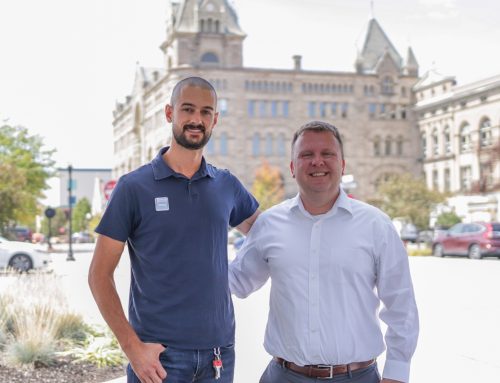
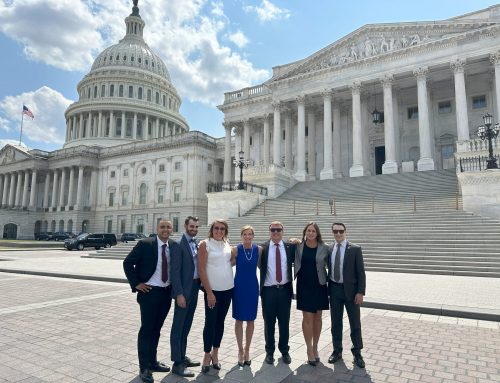
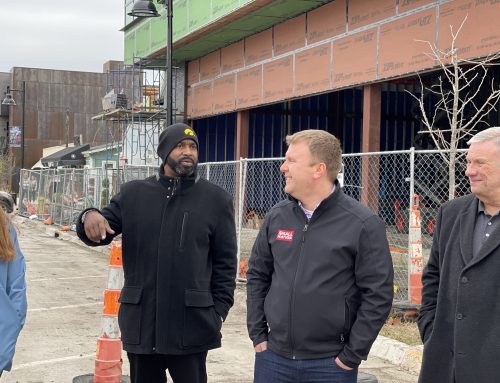
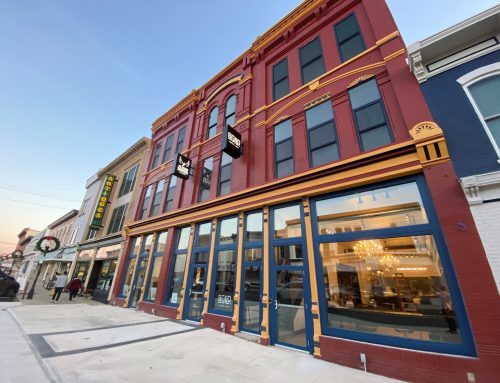
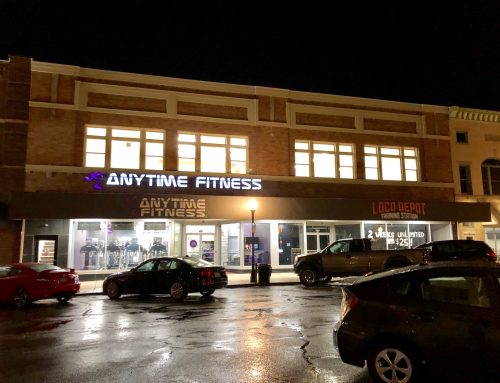
Leave A Comment